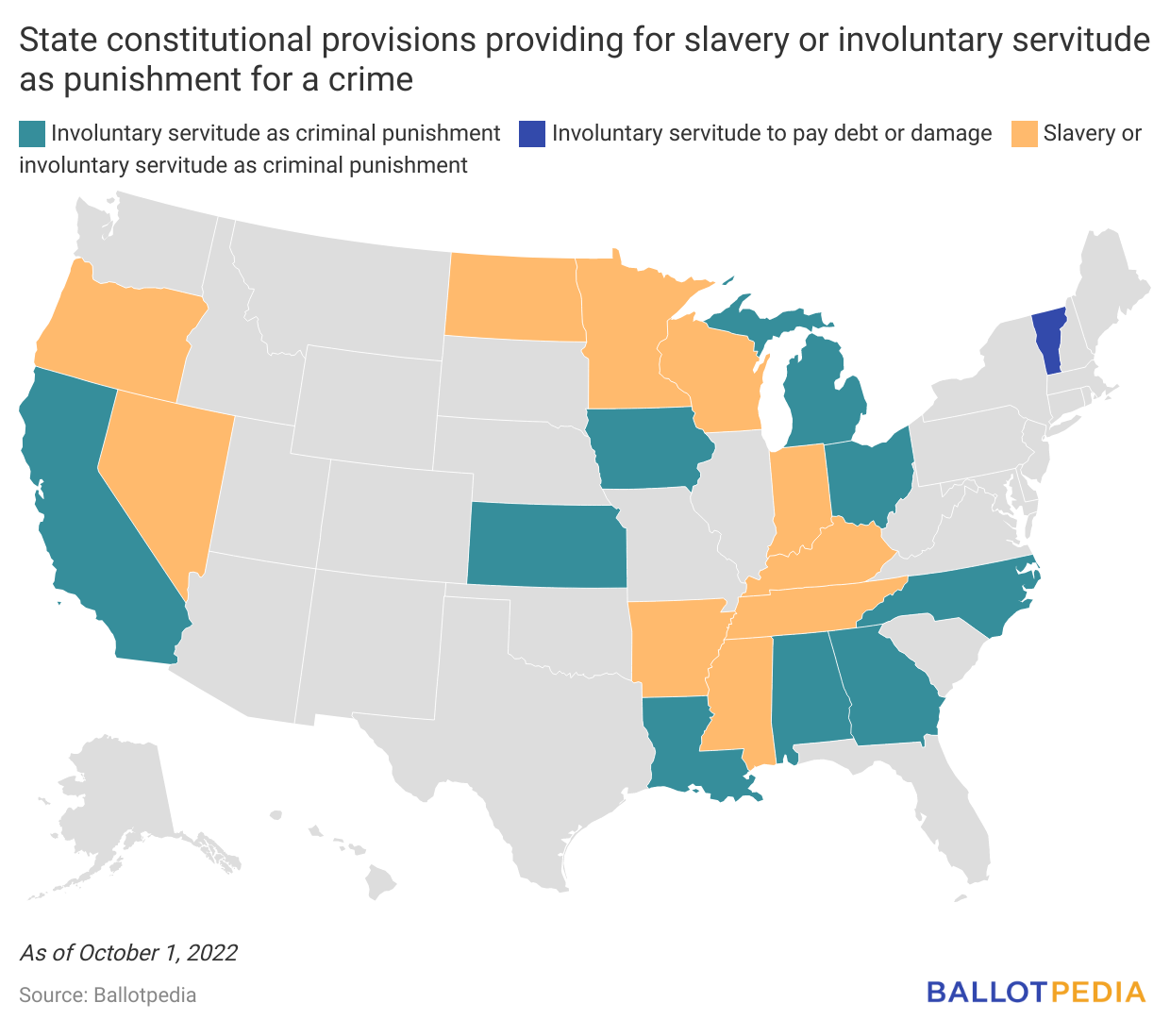On November 8, 2022, voters in five states—Alabama, Louisiana, Oregon, Tennessee, and Vermont—will decide on amending their state constitutions to repeal language regarding the use of slavery or indentured servitude as punishment for a crime, or, in the case of Vermont, for the payments of debts, damages, fines, costs.
The ballot questions are below:
- Alabama Recompiled Constitution Ratification Question: Ratifies an updated and recompiled state constitution, which was adopted by the legislature following voter approval of Amendment 4 in 2020. The proposed constitution repeals language that provides for involuntary servitude as a criminal punishment.
- Louisiana Amendment 7: Removes language in the state constitution that provides for slavery and involuntary servitude as punishment for a crime and instead says that slavery and involuntary servitude are prohibited, except that this cannot be applied to otherwise lawful administration of criminal justice.
- Oregon Measure 112: Repeals language providing for slavery or involuntary servitude as criminal punishments.
- Tennessee Amendment 3: Repeals language providing for slavery or involuntary servitude as a criminal punishment.
- Vermont Proposal 2: Repeals language stating that persons could be held as servants, slaves, or apprentices with the person’s consent or “for the payments of debts, damages, fines, costs, or the like” and adds language saying that “slavery and indentured servitude in any form are prohibited.”
The Thirteenth Amendment of the U.S. Constitution—which was ratified on December 6, 1865—prohibited slavery and involuntary servitude in the United States, except as a punishment for those convicted of crimes. The text of the Thirteenth Amendment reads:
1. Neither slavery nor involuntary servitude, except as a punishment for crime whereof the party shall have been duly convicted, shall exist within the United States, or any place subject to their jurisdiction.
2. Congress shall have power to enforce this article by appropriate legislation.
As of 2022, 10 state constitutions included provisions prohibiting enslavement and involuntary servitude but with an exception for criminal punishments, while nine states had constitutions that included provisions permitting involuntary servitude, but not slavery, as a criminal punishment.
The states with constitutions that include provisions regarding slavery and involuntary servitude as a criminal punishment are Arkansas, Indiana, Kentucky, Minnesota, Mississippi, Nevada, North Dakota, Oregon, Tennessee, and Wisconsin.
The states with constitutions that include provisions regarding involuntary servitude, but not slavery, as criminal punishment, are Alabama, California, Georgia, Iowa, Kansas, Louisiana, Michigan, North Carolina, and Ohio.
Vermont is the only state that has a constitutional provision regarding involuntary servitude to pay a debt, damage, fine, or cost.
Nebraska, Utah, and Colorado put measures on the ballot to remove language from their state constitutions regarding the use of slavery and involuntary servitude as criminal punishments. These amendments were approved in Nebraska and Utah in 2020, and in Colorado in 2018.


